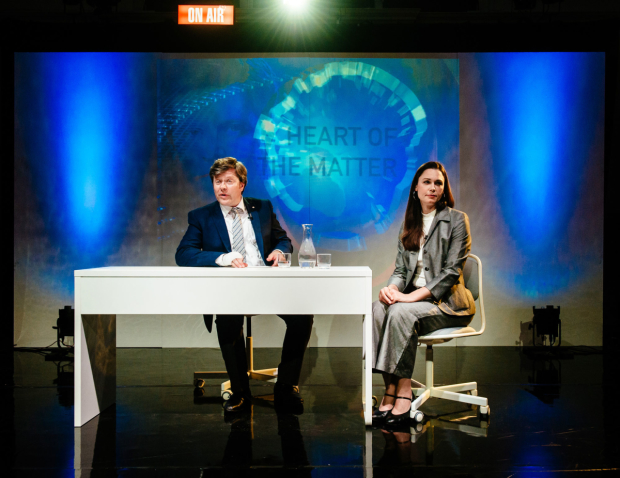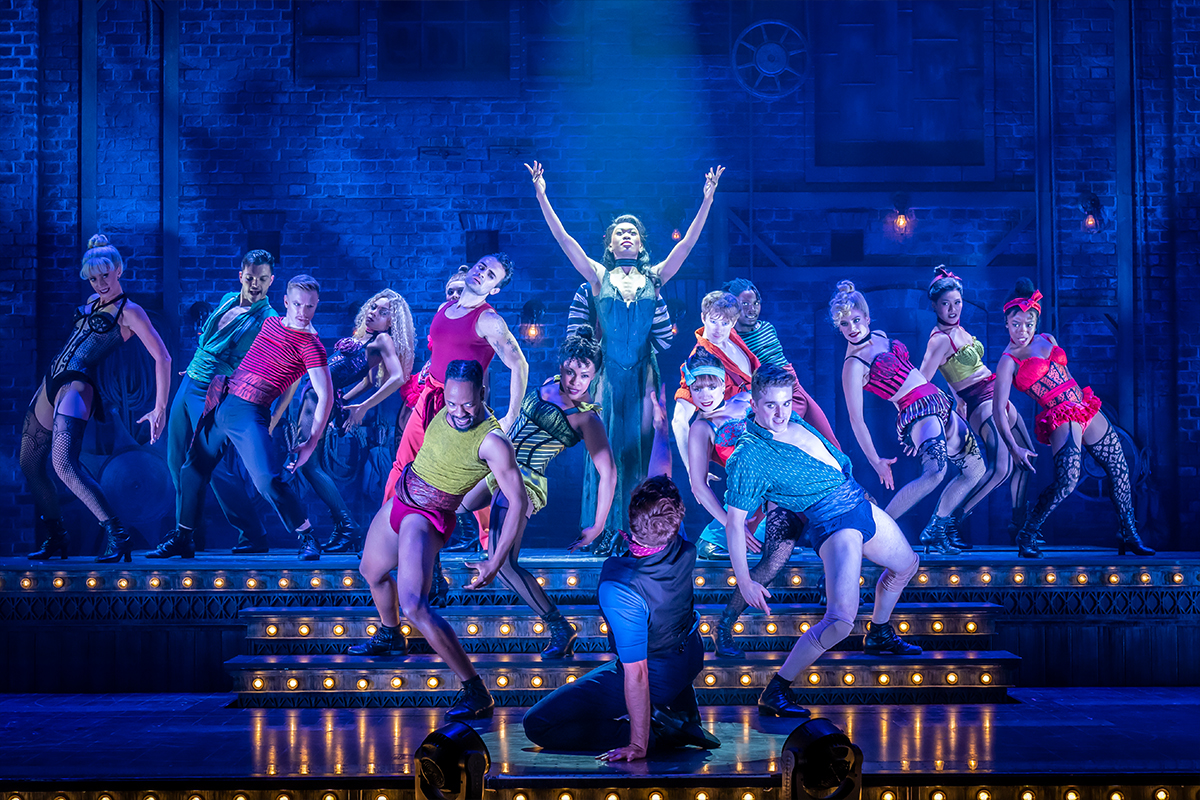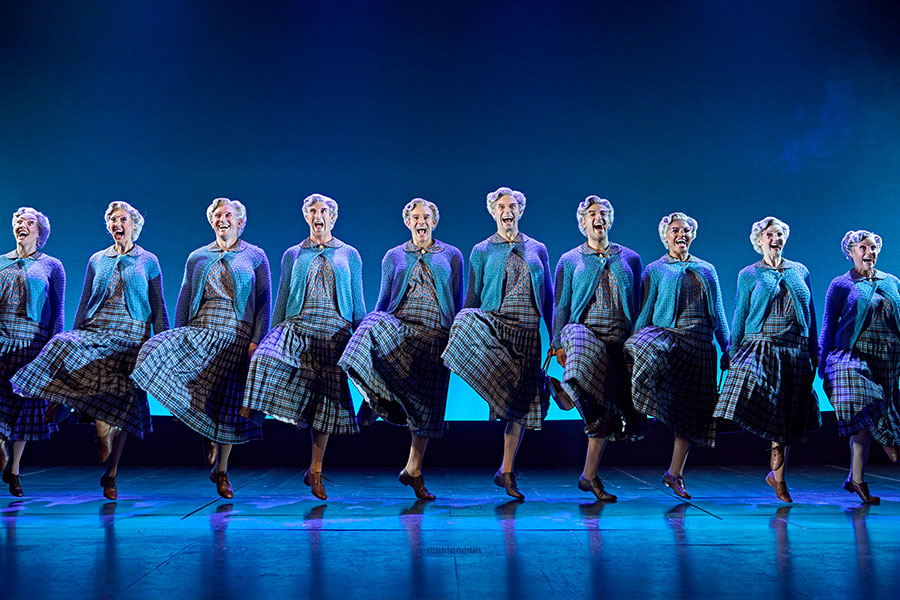Review: Party Trap (Shoreditch Town Hall)

© (c) Alex Brenner
Party Trap is a palindrome of a play. Halfway through, it kicks into reverse and, as the script runs backwards, its plot keeps pushing forwards. The same words rearrange themselves into new meanings. It still makes sense, just different sense. It’s a clever, clever thing; too clever by half.
This isn’t just an exercise in style. A sharp satire on the establishment, Party Trap unpicks the relationship between politics and journalism; the way each eats into the other. Ross Sutherland lays bare not just their co-dependence, but the way that tends to empty consensus. Two sectors that should be independent and oppositional have collapsed into one – two sides of the same coin; reflections smiling back at one another. Politicians need journalists. Journalists need politicians. That symbiotic relationship does us all a disservice.
Sir David Bradley (Simon Hepworth), host of a high-profile political talk show, is the sort of hack who eats interviewees for breakfast – Paxman as Pacman. Privately depressed, a widower who keeps whisky in his top drawer, he’s a public institution. The title marks him out: an establishment figure. "I’m a journalist," he insists. "I’m not an entertainer."
With a new populist party in power, elected on a platform of media regulation, his next guest is its figurehead, Amanda Barkham (Zara Plessard). Though he vows "to break" her on camera, she turns the tables on him, taking his chair live on air. The hunter becomes the hunted; the journalist, the story. Bradley’s own questions come back to haunt him.
Sutherland sits in the tradition of oulipo: a group of French '60s writers who wrote to arbitrary constraints. One, Georges Perec, wrote a whole novel without the letter ‘e.’ Think of them as literature’s escapologists, writing their way out of tight binds. Sutherland’s last show, Standby for Tape Back-Up, was a performance poem that aligned perfectly with an old VHS mix-tape; words dictated by and chiming with fragments of footage – films, ads and tv shows – recorded over one another. Party Trap‘s palindrome is pure oulipo.
The effect, always, is to draw attention to the writing – not just the words themselves, but the process of their writing; the puzzle and the solution. It’s distancing on the page. On the stage, though, it gets in the way. The form is its own curse. As theatre, Party Trap is awkward, bloodless and illustrative.
Form marries up with content – and Sutherland skewers the way journalism that ought to hold a mirror to politics only mirrors it – but it’s just not dynamic. Since each line has a dual purpose, nothing quite rings true. Characters feel contrived – their actions dictated; their dialogue, clinical and clunky. That every word’s compromised makes for pointed satire, just not great drama and, because it flags its own finish line, you itch for the end of Rob Watt’s bare-stage production.
We talk a lot about the right to fail, yet we rarely see it for real. Party Trap more than earns that right. It is a daring, virtuosic, valiant failure; an impressive feat of writing that just happens not to work in practice.
Party Trap runs at Shoreditch Town Hall until 1 October










